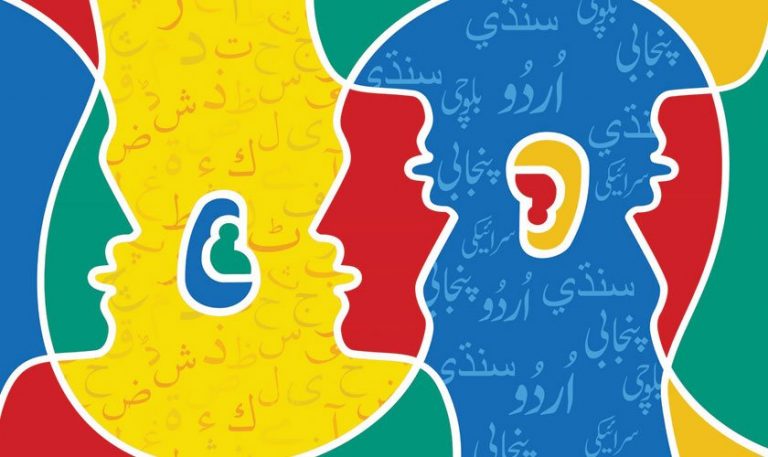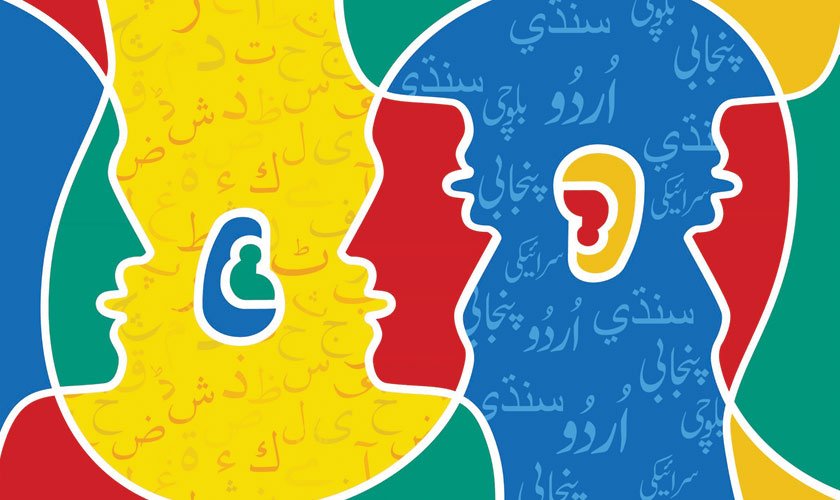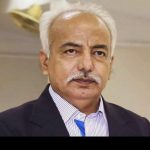
 The globalized age of multilingualism poses a cutting edge environment. There is need of proactive steps to strengthen Sindhi language as the mother tongue, lingua franca, language of trade and commerce and official language
The globalized age of multilingualism poses a cutting edge environment. There is need of proactive steps to strengthen Sindhi language as the mother tongue, lingua franca, language of trade and commerce and official language
By Noor Ahmed Janjhi
February 21 is celebrated as the International Mother Languages Day every year. It was started in 2000 on the initiation at UNESCO by Bangladesh IN 1999. The theme of this year (2021) is “Fostering Multilingualism in Inclusion of Society and Education”. Before discussing the topic let us have a bird’s eye view of language and mother tongue.
Language is a very interesting and complicated phenomenon of human culture. Generally it is thought that the language is learned by behavior of human beings. However, it has been observed that there is a great connection of the language system with the congenital system of human being. Renowned linguists of world have formulated definitions of the language. Some of them are as follows:
Aristotle says, “Speech is the representation of the experience of the mind”. Saussure is of opinion that “Language is an arbitrary system of signs constituted of the signifier and signified”. Bloomfield says, “The totality of the utterances that can be made in a speech community is the language of that speech community”. According to Bloch and Trager “A language is a system of arbitrary vocal sounds by means of a social group cooperates”. Noam Chomsky says, “The language is the inherent capability of the native speakers to understand and form grammatical sentences. A language is a set of (finite or infinite) sentences, each with finite length and constructed out of a finite set of elements”.
Encyclopedia Britannica has defined a language as, “Language is a system of conventional or written symbols by means of which human beings as members of social groups and participants in its culture communicate”.
In the light of the above definitions, it can be said that the language is a great cultural organ of human beings. There are three important roles a language plays in the life of an individual and of society. Firstly, the language enables a human being to express his inner self and experience of mind. However, it is a strong attempt in this regard yet not compatible to the image in human mind. So it needs support of body language and gestures. Secondly, it is the means of communication and equips human beings to communicate with the people who know the language. For this trait knowledge of the same language is necessary. Thirdly, it is the symbol of cultural identity and power code.
 Mother tongue or the first language (L1) is the foundation of all the languages a person learns or acquires in life. Richard Nordquist has described the mother tongue in these words “The term ‘mother tongue’ refers to a person’s native language — that is, a language learned from birth. It is also called a first language, dominant language, home language, and native tongue (although these terms are not necessarily synonymous)”.
Mother tongue or the first language (L1) is the foundation of all the languages a person learns or acquires in life. Richard Nordquist has described the mother tongue in these words “The term ‘mother tongue’ refers to a person’s native language — that is, a language learned from birth. It is also called a first language, dominant language, home language, and native tongue (although these terms are not necessarily synonymous)”.
There is great importance of the mother tongue because it is the language a baby listens while in mother’s womb even. It creates a congenital impact on the brain faculties. After the birth, a mother transforms basic units or phonemes into the memory or brain bed of her baby. The fundamental phonemes enable to create or attribute relationship of words with the concepts about everything. The acquisition of any language starts with listening and the listening is transformed into utterances. The writing and grammatical systems of the languages are developed later on. The language is a dynamic cultural phenomenon flourishing every time. It passes through many upheavals because of the internal culture of the language, as well as the external impact and interaction. The languages flourish very much and the languages perish away. The attitude of the native speakers of any language plays a pivotal role in the development of any language. If the native speakers abandon their language, none will save it from dying away.
Multilingualism exhibits both the political and the linguistic consequences. The linguistic consequences include the development of a lingua franca, creation of mixed languages within a linguistic milieu, enhances cross cultural communication strategies and cross cultural communication skills. Benefits of multilingualism practices in education include the creation and appreciation of cultural awareness, adds academic and educational value, enhances creativity, adjustment in society and appreciation of local languages. The globalized world is living in the age of digitalization, digitization and knowledge economy. The development of the means of communication has connected the globe and world is moving towards an inclusion by default. In the inclusive process of globalized resources, there is the need of fostering multilingualism as it accommodates the diversity of cultures through diversity of language. Mother tongue based multilingualism spurs the social and educational development. The use of mother tongue in the society develops a social cohesion and focused interaction, which create an amicable environment for improved interaction. All the social groups like interaction in their mother languages. On the other hand, there is a great role of mother tongue in education. It has been established by the researchers and linguists that the early childhood education must be in mother tongue. It makes easier for children to pick up and learn other languages and develops a child’s personal, social and cultural identity. It enables the students to develop their critical thinking and literacy skills. The children learning in mother tongue adopt better understanding of the curriculum. The skills learnt in mother tongue do not have to be re-taught when the child transfers to a second language. The learners enjoy school more and learn faster due to feeling comfortable in their environment. Self-esteem is higher for children learning in mother tongue and it also facilitates to increase parent child interaction as the parent can assist with homework. The research has revealed that the children that capitalize on learning through multilingualism enjoy a higher socioeconomic status earn higher earnings. In this way, the mother tongue paves a way for social development as well education progression.
 Sindhi language, being a mother tongue of the millions of people, has a great historical background and interaction with the different languages during different eras. Despite the succeeding changes, it has safeguarded its existence as a mother tongue, lingua franca and the language of trade and commerce. In the globalized world where multilingualism has been strong and more interactive, Sindhi language exhibits great compatibility. It has a great and vast system of phonemes accommodating the phonemes of the other languages. It has been lending and borrowing its terms to the other languages of world during different periods. It moves with a great intonation full of linguistic aestheticism, linguistic diversity and a treasure trove of literary heritage; verbal as well as documented one. Sindhi language exhibits a great social utility while interacting with the speakers of the other languages. People of other languages like to learn it if they found such learning environment.
Sindhi language, being a mother tongue of the millions of people, has a great historical background and interaction with the different languages during different eras. Despite the succeeding changes, it has safeguarded its existence as a mother tongue, lingua franca and the language of trade and commerce. In the globalized world where multilingualism has been strong and more interactive, Sindhi language exhibits great compatibility. It has a great and vast system of phonemes accommodating the phonemes of the other languages. It has been lending and borrowing its terms to the other languages of world during different periods. It moves with a great intonation full of linguistic aestheticism, linguistic diversity and a treasure trove of literary heritage; verbal as well as documented one. Sindhi language exhibits a great social utility while interacting with the speakers of the other languages. People of other languages like to learn it if they found such learning environment.
The globalized age of multilingualism poses a cutting edge environment. There is need of proactive steps to strengthen Sindhi language as the mother tongue, lingua franca, language of trade and commerce and official language. All the walks of life in the society of Sindh should speak Sindhi in their routine life and offer an environment conducive to the non-native speakers. Mother and primary teacher are the main institutions who play fundamental and important role in the development of the mother tongue. They should be provided with good training in this regard. The use of language by media should be improved. For the coinage of scientific terms and the terms of trade and commerce, there is need of a producing society. There is dire need of strategic planning in this regard. The organizations and organs of the government working for the development of language should be made active to work as per their mandate. They must not only focus on publishing books and providing opportunities to the coterie of friends. The Indus seals should be deciphered to set right the theory of language and improvement of the script. The teaching in Sindhi and of Sindhi must be ensured in all the schooling systems working in Sindh.
Last but not the least, all the products of language and linguistic diversity should be digitized and digitalized to make the availability of linguistic heritage through internet and the gadgets used by young generation. Translation bureaus at the universities and other institutions should be established or made functional.
All of the above discussed points need the collaborative efforts by the community as well as the government and its hierarchy.
____________________
About the Author
